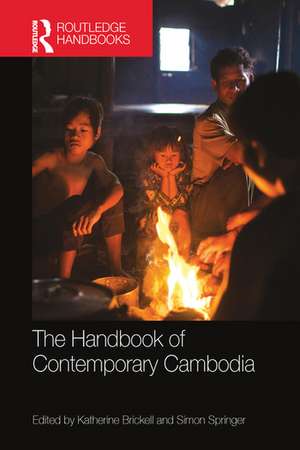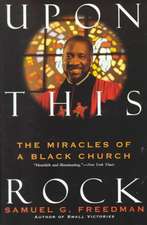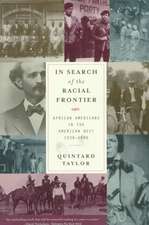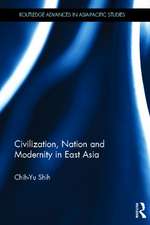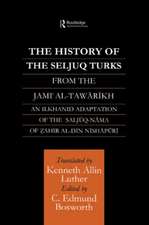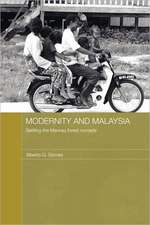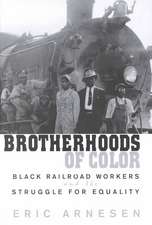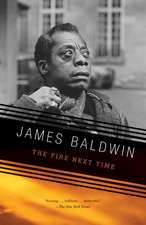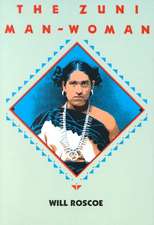The Handbook of Contemporary Cambodia
Editat de Katherine Brickell, Simon Springeren Limba Engleză Paperback – 30 iun 2020
- Political and Economic Tensions
- Rural Developments
- Urban Conflicts
- Social Processes
- Cultural Currents
The first section looks at the major political implications and tensions that have occurred in Cambodia, as well as the changing parameters of its economic profile. The handbook then highlights the major developments that are unfolding within the rural sphere, before moving on to consider how cities in Cambodia, and particularly Phnom Penh, have become primary sites of change. The fourth section covers the major processes that have shaped social understandings of the country, and how Cambodians have come to understand themselves in relation to each other and the outside world. Section five analyses the cultural dimensions of Cambodia’s current experience, and how identity comes into contact with and responds to other cultural themes.
Bringing together a team of leading scholars on Cambodia, the handbook presents an understanding of how sociocultural and political economic processes in the country have evolved. It is a cutting edge and interdisciplinary resource for scholars and students of Southeast Asian Studies, as well as policymakers, sociologists and political scientists with an interest in contemporary Cambodia.
| Toate formatele și edițiile | Preț | Express |
|---|---|---|
| Paperback (1) | 429.93 lei 43-57 zile | |
| Taylor & Francis – 30 iun 2020 | 429.93 lei 43-57 zile | |
| Hardback (1) | 1246.77 lei 43-57 zile | |
| Taylor & Francis – 15 sep 2016 | 1246.77 lei 43-57 zile |
Preț: 429.93 lei
Nou
Puncte Express: 645
Preț estimativ în valută:
82.27€ • 86.11$ • 68.47£
82.27€ • 86.11$ • 68.47£
Carte tipărită la comandă
Livrare economică 31 martie-14 aprilie
Preluare comenzi: 021 569.72.76
Specificații
ISBN-13: 9780367581473
ISBN-10: 0367581477
Pagini: 476
Dimensiuni: 174 x 246 x 24 mm
Greutate: 0.78 kg
Ediția:1
Editura: Taylor & Francis
Colecția Routledge
Locul publicării:Oxford, United Kingdom
ISBN-10: 0367581477
Pagini: 476
Dimensiuni: 174 x 246 x 24 mm
Greutate: 0.78 kg
Ediția:1
Editura: Taylor & Francis
Colecția Routledge
Locul publicării:Oxford, United Kingdom
Public țintă
PostgraduateNotă biografică
Katherine Brickell is Reader in Human Geography at Royal Holloway, University of London, UK, and recipient of the 2014 Royal Geographical Society Gill Memorial Award. For over a decade, her research has focused on gender, violence and rights in Cambodia.
Simon Springer is Associate Professor of Geography at the University of Victoria, Canada and recipient of the 2015 Association of American Geographers Stanley D. Brunn Young Scholar Award. He has authored four books, including Cambodia’s Neoliberal Order (Routledge, 2012).
Simon Springer is Associate Professor of Geography at the University of Victoria, Canada and recipient of the 2015 Association of American Geographers Stanley D. Brunn Young Scholar Award. He has authored four books, including Cambodia’s Neoliberal Order (Routledge, 2012).
Recenzii
This Handbook is sure to become the definitive starting point for just about anyone—from students to policymakers—to understand the political and economic tensions, rural developments, urban conflicts, social processes, and cultural currents underpinning today’s Cambodia. The contributors are top-notch and include a wide range of scholars ranging from geographers turned social constructivists to demographers to anti-corruption experts to journalists turned biographers. The Handbook of Contemporary Cambodia is truly a collection of gems that will be mined for many years to come.
Sophal Ear, Occidental College, Los Angeles, USA
In this crowded, courageous and penetrating collection of essays, over fifty scholars and activists examine some of the issues that press against Cambodia today. These deeply committed, highly professional chapters come together to form a path-breaking, invaluable, but often saddening book.
David Chandler, Monash University, Australia
Having given six years of my service for the promotion and protection of human rights in Cambodia as a senior UN official, I was pleased to see the publication of this book which examines in an interdisciplinary manner different facets of Cambodia. After going through a tragic past, Cambodia is emerging out of the ashes of conflict, lasting more nearly 30 years, as a forward-looking nation. It has started to build state institutions and infrastructure from scratch and is making significant progress in this regard. However, there is a dearth of academic literature on different aspects of Cambodian life and this book seems to fill that gap and fill in a handsome manner. Hence, it is a welcome and timely publication. The coverage of the book is comprehensive and should thus provide the reader with a good overview of the situation of the legal, political and economic landscape in Cambodia, a country with a rich cultural heritage. I highly commend this book to those interested in Cambodia.
Surya P. Subedi, University of Leeds, UK
The book opens a window into the realities of life for those living in the country today. More than 50 international and Cambodian researchers shine a spotlight on the justice system, microcredit, rural livelihoods and urban conflicts such as forced relocations.
Michelle Vachon, The Cambodia Daily
... the "Handbook of Contemporary Cambodia" remains a vital and indispensable guide to understanding Cambodian society as it is today. Besides exploring the com-plexities of current areas of conflict, it also provides a timely and highly relevant glimpse into a diversity of subjects such as visual arts, the maintenance and transfor-mation of traditional music, the persistence of spirits and religious and moral order, the politics of good water governance, the structure of the education system, labor rights, micro-finance, and the judicial system and important laws. All in all, the volume is required reading for practitioners, academ-ics, and professionals working on and in Cambodia.
Daniel Bultmann, ASIEN, The German Journal on Contemporary Asia
Sophal Ear, Occidental College, Los Angeles, USA
In this crowded, courageous and penetrating collection of essays, over fifty scholars and activists examine some of the issues that press against Cambodia today. These deeply committed, highly professional chapters come together to form a path-breaking, invaluable, but often saddening book.
David Chandler, Monash University, Australia
Having given six years of my service for the promotion and protection of human rights in Cambodia as a senior UN official, I was pleased to see the publication of this book which examines in an interdisciplinary manner different facets of Cambodia. After going through a tragic past, Cambodia is emerging out of the ashes of conflict, lasting more nearly 30 years, as a forward-looking nation. It has started to build state institutions and infrastructure from scratch and is making significant progress in this regard. However, there is a dearth of academic literature on different aspects of Cambodian life and this book seems to fill that gap and fill in a handsome manner. Hence, it is a welcome and timely publication. The coverage of the book is comprehensive and should thus provide the reader with a good overview of the situation of the legal, political and economic landscape in Cambodia, a country with a rich cultural heritage. I highly commend this book to those interested in Cambodia.
Surya P. Subedi, University of Leeds, UK
The book opens a window into the realities of life for those living in the country today. More than 50 international and Cambodian researchers shine a spotlight on the justice system, microcredit, rural livelihoods and urban conflicts such as forced relocations.
Michelle Vachon, The Cambodia Daily
... the "Handbook of Contemporary Cambodia" remains a vital and indispensable guide to understanding Cambodian society as it is today. Besides exploring the com-plexities of current areas of conflict, it also provides a timely and highly relevant glimpse into a diversity of subjects such as visual arts, the maintenance and transfor-mation of traditional music, the persistence of spirits and religious and moral order, the politics of good water governance, the structure of the education system, labor rights, micro-finance, and the judicial system and important laws. All in all, the volume is required reading for practitioners, academ-ics, and professionals working on and in Cambodia.
Daniel Bultmann, ASIEN, The German Journal on Contemporary Asia
Descriere
Offering a comprehensive overview of the current situation in the country, the Routledge Handbook of Contemporary Cambodia provides a broad coverage of social, cultural, political and economic development within both rural and urban contexts during the last decade. A detailed introduction places Cambodia within its global and regional fra
Cuprins
Introduction to contemporary Cambodia
Part 1: Political and economic tensions
1. The contemporary geopolitics of Cambodia: Alignments in regional and global contexts
2. Justice inverted: Law and human rights in 3. Justice and the past: The Khmer Rouge tribunal
4. Civil society in Cambodia: Challenges and contestation
5. Micro-saturated: The promises and pitfalls of microcredit as a development solution 6. The media in Cambodia
7. Tourism in Cambodia: Opportunities and challenges
Part 2: Rural developments
8. Exploring rural livelihoods through the lens of coastal fishers
9. Practices and challenges towards sustainability
10. The imperative of good water governance in Cambodia
11. Cambodia’s highlanders: Land, livelihoods and the politics of indigeneity
12. Under pressure: Environmental risk and contemporary resilience strategies in rural Cambodia
13. Concessions in Cambodia: Governing profits, extending state power and enclosing resources from the colonial era to the present
14. From chicken wing receipts to students in military uniforms: Land titling and property in post-conflict Cambodia
Part 3: Urban conflicts
15. Urban megaprojects and city planning in Phnom Penh
16. Labor rights and unions in Cambodia
17. The ties that bind: Rural-urban linkages in the Cambodian migration system
18. Real estate productions, practices, and strategies in contemporary Phnom Penh: An overview of social, economic, and political issues
19. Forced relocation in Cambodia
20. Homelessness in Cambodia: The terror of gentrification
21. Phnom Penh’s relocation sites and the obliteration of politics 22. Street vending in Phnom Penh: Flourishing but invisible
Part 4: Social processes
23. The contemporary landscape of education in Cambodia: Hybrid spaces of the "public" and "private"
24. Health: medical cosmologies and medical inequities 25. Violence against women and girls in Cambodia
26. Gendered politics of power in contemporary Cambodia
27. Sex politics and moral panics: LGBT communities, sex/entertainment works and sexually- active youth in Cambodia
28. Children, childhood and youth in contemporary Cambodia
29. Households and family processes
30. Digital technologies in contemporary Cambodia
Part 5: Cultural currents
31. Ethnic identities in Cambodia
32. Violence and memorialization in Cambodia
33. A shifting universe – religion and moral order in Cambodia
34. The persistent presence of Cambodian spirits: Contemporary knowledge production in Cambodia
35. Natural and cultural heritage in Cambodia
36. Destination Cambodia: A volunteer tourism boom
37. Addressing the contemporary: Recent trends and debates in Cambodian visual art
38. Finding new ground: Maintaining and transforming traditional music
Part 1: Political and economic tensions
1. The contemporary geopolitics of Cambodia: Alignments in regional and global contexts
2. Justice inverted: Law and human rights in 3. Justice and the past: The Khmer Rouge tribunal
4. Civil society in Cambodia: Challenges and contestation
5. Micro-saturated: The promises and pitfalls of microcredit as a development solution 6. The media in Cambodia
7. Tourism in Cambodia: Opportunities and challenges
Part 2: Rural developments
8. Exploring rural livelihoods through the lens of coastal fishers
9. Practices and challenges towards sustainability
10. The imperative of good water governance in Cambodia
11. Cambodia’s highlanders: Land, livelihoods and the politics of indigeneity
12. Under pressure: Environmental risk and contemporary resilience strategies in rural Cambodia
13. Concessions in Cambodia: Governing profits, extending state power and enclosing resources from the colonial era to the present
14. From chicken wing receipts to students in military uniforms: Land titling and property in post-conflict Cambodia
Part 3: Urban conflicts
15. Urban megaprojects and city planning in Phnom Penh
16. Labor rights and unions in Cambodia
17. The ties that bind: Rural-urban linkages in the Cambodian migration system
18. Real estate productions, practices, and strategies in contemporary Phnom Penh: An overview of social, economic, and political issues
19. Forced relocation in Cambodia
20. Homelessness in Cambodia: The terror of gentrification
21. Phnom Penh’s relocation sites and the obliteration of politics 22. Street vending in Phnom Penh: Flourishing but invisible
Part 4: Social processes
23. The contemporary landscape of education in Cambodia: Hybrid spaces of the "public" and "private"
24. Health: medical cosmologies and medical inequities 25. Violence against women and girls in Cambodia
26. Gendered politics of power in contemporary Cambodia
27. Sex politics and moral panics: LGBT communities, sex/entertainment works and sexually- active youth in Cambodia
28. Children, childhood and youth in contemporary Cambodia
29. Households and family processes
30. Digital technologies in contemporary Cambodia
Part 5: Cultural currents
31. Ethnic identities in Cambodia
32. Violence and memorialization in Cambodia
33. A shifting universe – religion and moral order in Cambodia
34. The persistent presence of Cambodian spirits: Contemporary knowledge production in Cambodia
35. Natural and cultural heritage in Cambodia
36. Destination Cambodia: A volunteer tourism boom
37. Addressing the contemporary: Recent trends and debates in Cambodian visual art
38. Finding new ground: Maintaining and transforming traditional music
